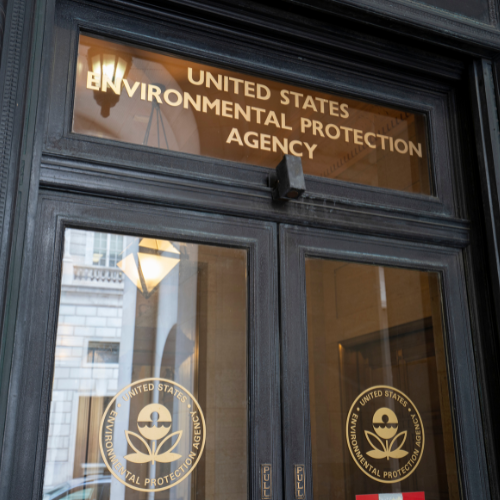
Asbestos in Schools: What AHERA Means for Student Safety
November 19, 2024
What Is Artificial Stone Silicosis? Understanding the Risks
December 3, 2024In addition to a civil third party lawsuit, asbestos trust funds serve as a critical lifeline for victims of mesothelioma, lung cancer, asbestosis, and other asbestos-related diseases. These funds aim to provide partial financial compensation to individuals affected by the negligence of asbestos-producing companies. Every year, doctors diagnose thousands of people with illnesses caused by asbestos exposure.
Trust funds help ensure that victims get the support they need. This support is available even if the companies responsible are no longer in business.
For patients and their families, these funds mean access to justice. They also help manage the heavy financial burden of medical bills, lost income, and caregiving costs.
In this blog, we will look at how asbestos trust funds work. We will discuss who qualifies for them. We will also see how these funds help victims of asbestos-related illnesses.
What Are Asbestos Trust Funds?
Asbestos trust funds are money sources created during the bankruptcy of companies that manufactured or supplied asbestos products. When these companies faced an influx of lawsuits from individuals diagnosed with mesothelioma and other asbestos-related conditions, they took advantage of a special bankruptcy law designed to protect asbestos companies, by separated their assets from their asbestos liabilities.
Insufficient Funds
Now protected from lawsuits, the companies were allowed to put only a portion of the required assets to fund the liabilities into the trusts. While still many billions of dollars, there are so many victims, that there are insufficient funds to fully compensate everyone. Therefore, to ensure that current and future victims can still receive compensation, Administrators manage the trusts and review and process claims to determine available compensation amounts.
Today, there are more than 90 active asbestos trust funds in the United States, collectively containing many billions of dollars. These funds help victims access financial resources, even many years after exposure. Mesothelioma and other asbestos-related illnesses often take a long time to develop.
Who Is Eligible for Compensation?
To qualify for compensation from an asbestos trust fund, individuals must meet specific criteria, which generally include:
A Confirmed Diagnosis
Claimants must provide medical records proving they have been diagnosed with mesothelioma, lung cancer, asbestosis, or another asbestos-related illness. Diagnosis must come from a qualified medical professional and meet the criteria outlined by the trust fund
Documented Exposure
The individual must demonstrate that their illness resulted from exposure to asbestos-containing products manufactured or supplied by the company responsible for the trust fund. This often requires employment records, product documentation, deposition testimony, or witness affidavits linking the claimant to the company’s asbestos products.
Meeting Filing Requirements
Each asbestos trust has unique guidelines and deadlines for filing a claim. Claimants must adhere to these requirements to ensure their claim is considered.
The process may seem difficult. However, experienced legal professionals can assist victims. They help gather the necessary documents and file claims correctly.
How the Claims Process Works
Filing a claim with an asbestos trust fund has several steps. It is important to understand the process to get paid on time.
Initial Evaluation
The first step is determining eligibility. This includes reviewing the individual’s medical records, work history, and potential exposure to asbestos-containing products.
Filing the Claim
Once we establish eligibility, we submit a formal claim to the appropriate trust fund. This submission includes all necessary documents. These are medical reports, employment records, and other evidence. This evidence connects the illness to asbestos exposure.
Claim Review
Trust administrators review the submitted claim to verify its validity. They may use an expedited review process for straightforward cases or an individual review for more complex claims.
Valuation of the Claim
The trust gives a value to the claim. This value depends on how serious the illness is, the level of exposure, and other factors. Most trusts use a payment percentage system. This means claimants usually get only part of the assigned claim value. Since the trusts were all under-funded, this helps keep funds available for future victims.
Receiving Compensation
After approval, the claimant receives payment. The time it takes to get compensation depends on how fast the trust processes claims and how complex the claim is.
How Trust Funds Help Victims
Asbestos trust funds provide invaluable support for individuals and families affected by asbestos exposure. Here’s how they make a difference:
Covering Medical Expenses
Mesothelioma, lung cancer, and asbestosis require costly treatments, including surgeries, chemotherapy, and palliative care. Trust fund compensation helps victims afford these necessary medical interventions.
Replacing Lost Income
Many asbestos victims must leave their jobs because their illness makes it hard to work. Trust funds provide financial relief, helping families manage the loss of income.
Providing Caregiving Support
Families often shoulder the responsibility of caregiving, which can lead to additional financial and emotional strain. Trust fund payments can help cover caregiving costs or compensate family members for lost income due to caregiving responsibilities.
Challenges in Accessing Trust Funds
While asbestos trust funds provide essential support, accessing compensation is not without challenges. Some common hurdles include:
Proving Exposure
It can be hard to show a link between an illness and asbestos exposure. This is especially true if the exposure happened many years ago.
Each trust has its own rules. Navigating these rules can be confusing for claimants.
Payment Percentages
Because of limited resources, most trust funds pay only a percentage of the claim’s full value. This can leave victims with less compensation than they may need.
Fortunately, working with experienced attorneys can help victims overcome these challenges and maximize their compensation.
How Brayton Purcell LLP Can Help
Navigating the asbestos trust fund claims process can be overwhelming, especially for individuals dealing with serious health conditions. At Brayton Purcell LLP, we specialize in helping victims of asbestos exposure secure the compensation they deserve.
Contact us today for the help you need. Our asbestos trust team has decades of experience handling asbestos-related cases and a deep understanding of trust fund requirements. We assist clients with every step of the process, from gathering documentation to filing claims and ensuring accurate valuation. Our goal is to provide peace of mind and financial security to victims and their families.
Get the Legal Help You Need from Brayton Purcell LLP
Asbestos trust funds play a crucial role in providing financial relief to victims of mesothelioma, lung cancer, and asbestosis. These funds help people by covering medical costs, lost wages, and caregiving expenses. This support provides a way to achieve justice and stability.
If you or someone you care about has an asbestos-related illness, it is important to talk a mesothelioma law firm about your rights and options. Brayton Purcell LLP is here to help you with asbestos trust fund claims. Our asbestos compensation lawyers will make sure you get the assistance you need. Contact Brayton Purcell LLP or give us a call at (800) 361-2417 to speak with one of our expert asbestos lawyers today.














